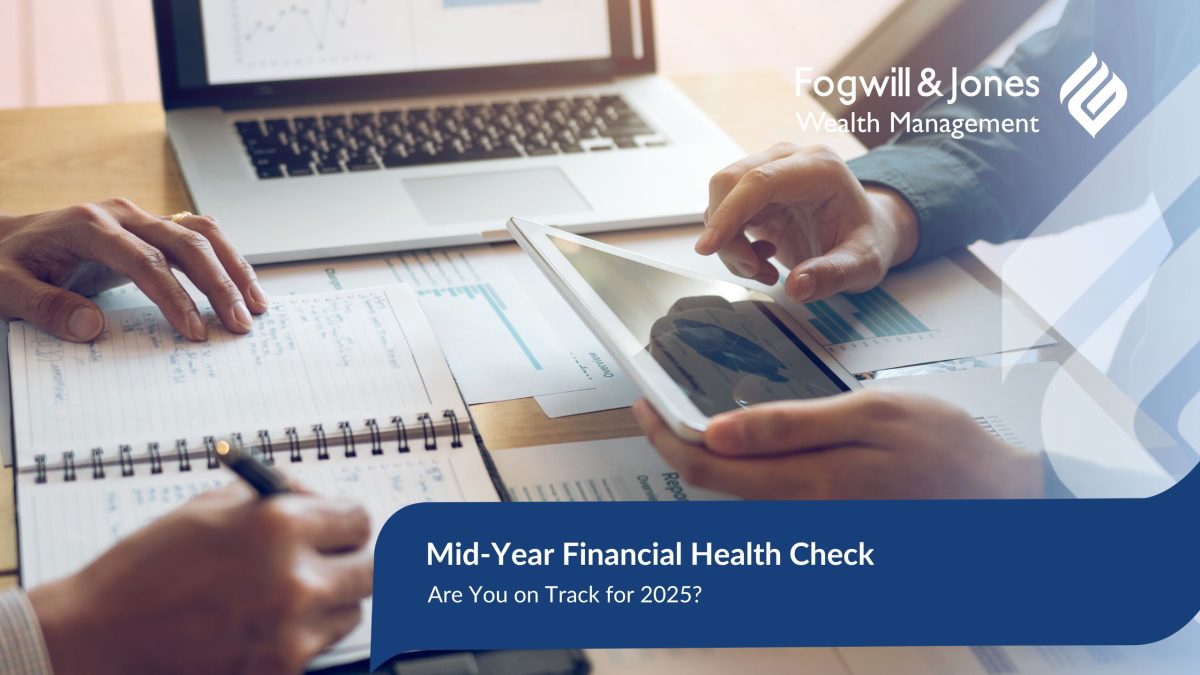Inheritance Tax (IHT) is often misunderstood. Some assume they’ll be liable when they won’t be. Others overlook it entirely, or significantly underestimate what their estate might owe. This confusion is more than a technicality – it can affect how families plan, how wealth is passed on, and whether opportunities to protect a legacy are missed.
At Fogwill & Jones, we regularly speak with individuals and families who want to do the right thing for their loved ones, but feel uncertain about how IHT works – and whether it applies to them. That’s perfectly understandable. The rules can feel complex, and the impact of small decisions can be far-reaching.
But as recent research shows, the confusion is widespread, and even basic estimates are often inaccurate.
What the research tells us
Recent figures cited in FTAdviser (August 2025) reveal how poorly understood IHT remains among the public:
• Among respondents with estates worth £100,000, 42% believed there would be an IHT charge on their death. On average, they estimated a tax bill of over £35,000.
• For those with estates between £100,000 and £325,000, 55% believed IHT would apply to them. The average expected liability? £48,000.
• Even among those with larger estates – £325,001 to £750,000 – 48% admitted they had no idea how much tax might be payable. Those who did estimate thought they’d face an average IHT bill of £56,000.
These numbers highlight two core issues:
- People are often mistaken about whether they’re liable. Many believe they’ll pay IHT when, under current thresholds, they likely wouldn’t.
- Even those who are liable often miscalculate how much. Estimates vary significantly and are frequently disconnected from the reality of how IHT is calculated.
What’s behind the confusion?
There are a few reasons IHT is so frequently misunderstood:
• Thresholds and exemptions are not well known. For example, the current nil-rate band (£325,000) and residence nil-rate band (£175,000) can potentially shield up to £500,000 per person – or £1 million for a married couple – from IHT. But many people don’t know how these work, or whether they apply to them.
• Property values can tip estates into liability. With rising house prices, many people are unaware that their estate may have crossed the threshold – especially if they’ve owned property for many years.
• Assumptions are made without advice. Individuals often rely on hearsay, online articles, or generalised tools to estimate IHT, rather than seeking a calculation based on their specific circumstances.
The cost of misunderstanding
This lack of clarity can lead to two unhelpful outcomes:
• Missed planning opportunities. Without understanding whether IHT applies, or how much might be due, people often delay or avoid taking action that could reduce their liability – such as lifetime gifting, creating trusts, or making use of allowances.
• Unintended consequences for beneficiaries. If no planning is in place, families may face larger tax bills than necessary. In some cases, this might mean assets need to be sold quickly to cover the liability, which can add stress at an already emotional time.
Why tailored advice makes a difference
Inheritance Tax planning is not just about reducing a future tax bill – it’s about ensuring that your wealth is passed on according to your wishes, in the most efficient and thoughtful way possible.
At Fogwill & Jones, we help clients:
• Understand their likely IHT position, based on their full financial picture – including property, pensions, business assets, and investments.
• Make use of allowances and reliefs, such as the residence nil-rate band or Business Relief, where applicable.
• Develop a structured plan that protects their estate, supports their family, and aligns with their long-term goals.
• Avoid common pitfalls, such as inadvertently gifting assets in ways that don’t reduce the estate’s value for IHT purposes.
Our approach is always personal – because the right strategy depends not just on the numbers, but on your family structure, values, and vision for the future.
Final Thoughts
You don’t need to have a multi-million-pound estate for IHT to matter. With property prices as they are, many families are closer to the threshold than they realise. But equally, many worry unnecessarily – assuming they’ll face a significant IHT bill, when in reality they may not.
The only way to gain real clarity is through a conversation tailored to you.
If you’re unsure where you stand with Inheritance Tax, or simply want to make sure your legacy is protected, we’re here to help. At Fogwill & Jones, we bring decades of experience, technical expertise, and a personal approach to every client relationship – helping you plan with confidence and peace of mind.











